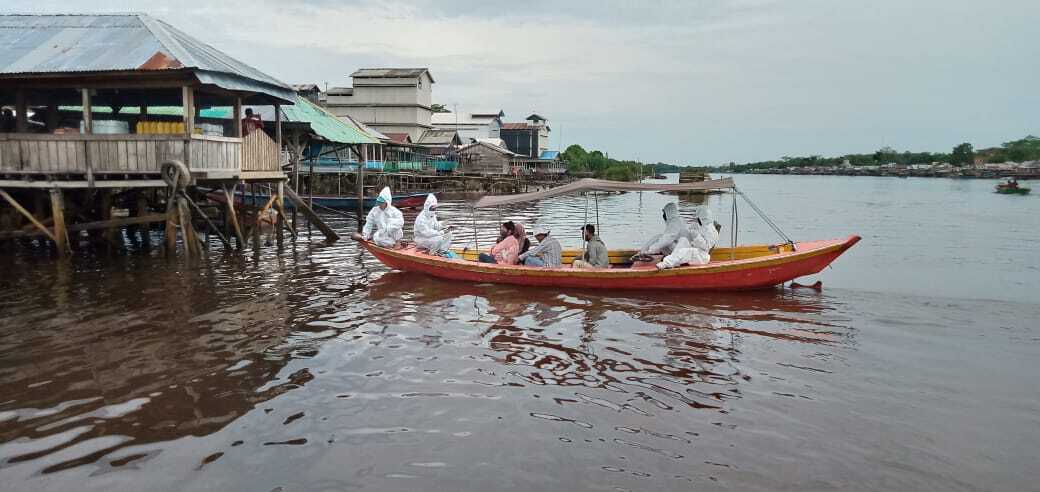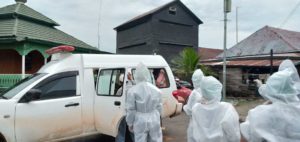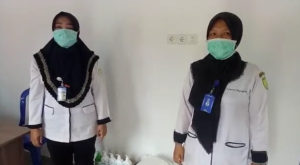Mid-March marked a turning point in the global response to the Coronavirus as countries across the world fell into lockdown and economies stood still. Issues of adequate Personal Protective Equipment (PPE), transmission factors and a lack of proven treatment options still dominate news coverage as many nations are attempting to prevent healthcare systems from being overwhelmed.
Far away from the news spotlight, rural and remote communities across the world are even more vulnerable, with limited access to information and low income hampering their ability to weather the global crisis. At the Sumatra Merang Peatland Project (SMPP) in Indonesia, where teams are restoring over 22,000 hectares of tropical rainforest in the Merang biodiversity corridor, COVID-19 has been a very real threat.
Even before the pandemic, the SMPP project was already developing important healthcare programmes for surrounding communities to improve heath infrastructure and public awareness of threats. Throughout 2019, the project researched the most pressing health challenges in the area, which highlighted key issues such as a low rate of contraception use, high rate of smoking and a lack of understanding of proper hygiene practices. To address these health concerns, the project has recently renovated a local health centre, hired healthcare workers and planned a maternal and child health programme to prevent stunting in infants.
The SMPP’s community development team is working to empower community leaders, mothers and midwives to educate the members of their community on key tactics that improve the health of newborn babies. Importantly, this focus on health at the SMPP has helped form key public health relationships in the communities surrounding the project site, which are now supporting the project’s response to the pandemic.
To combat the virus threat, the project has developed a COVID-19 strategy to safeguard the surrounding communities. In April, our implementing partner on the ground, Forest Carbon, signed an emergency Memorandum of Understanding to provide PPE to local health centre workers in nearby villages. In addition to training project staff in prevention best practices, the SMPP community development team has been coordinating with local health centres on how to best respond to the crisis, supported the evacuation of infected villagers and mobilised its logistics and procurement team to provide PPE for local health workers.
Beyond PPE, and the immediate concerns of transmission and health care capacity, projects like SMPP are well-positioned to mitigate future virus risks. Deforestation, mining, rapid urbanisation and growing transport infrastructure are bringing humans and animal species into closer contact, allowing viruses more opportunities to jump to humans. A growing amount of research suggests that zoonotic diseases, those that can pass between animals and humans, are linked to environmental change and human behaviour. Projects like SMPP restore critical ecosystem services, strengthen habitat connectivity and ultimately reduce pressures on our natural environment.
Climate finance at SMPP supports alternative, sustainable job creation for local communities, such as peatland restoration, logging prevention and biodiversity preservation. These activities directly contribute to conservation goals and biodiversity objectives – this model protects both ecosystems and communities by directing livelihoods away from environmental degradation and towards regeneration and restoration. Supporting projects like SMPP that protect and restore nature and biodiversity is critical to combating future virus risks. Read this piece from our Senior Advisor, Andrew Mitchell, about how cracking down on environmental degradation is a solution to preventing future virus outbreaks.
Find out more about the SMPP project and its benefits here.


